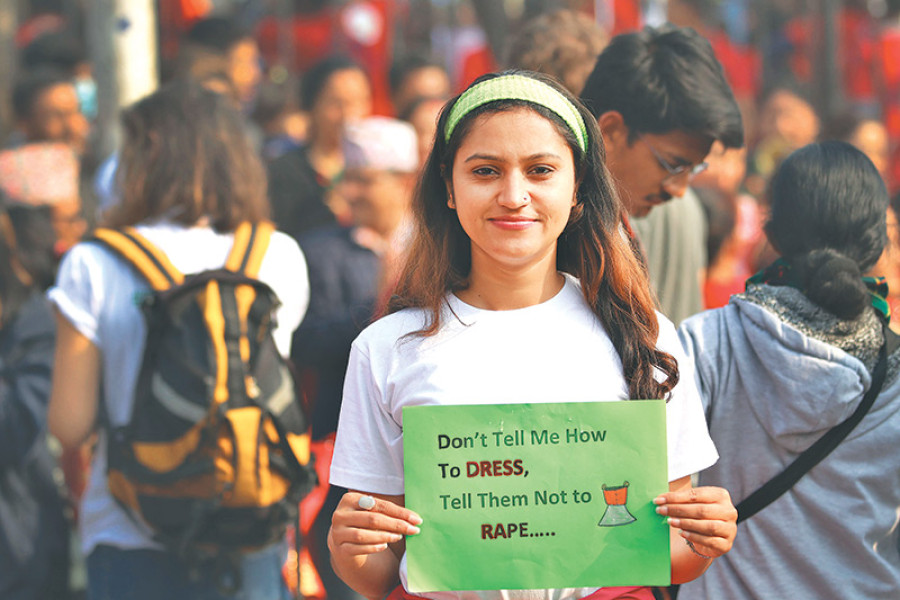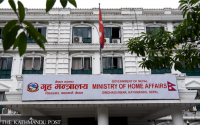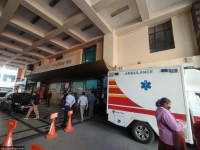National
Women’s Day: As much a fight as celebration
After rape cases started surfacing in Nepal, a social media campaign #RageAgainstRape gained momentum with thousands of people coming out to speak out against rape.
Sandesh Ghimire
After rape cases started surfacing in Nepal, a social media campaign #RageAgainstRape gained momentum with thousands of people coming out to speak out against rape.
“The campaign started in the aftermath of a rape committed at Landmark Hotel on Durbarmarg,” Hima Bista, one of the initiators of the campaign, told the Post. “It became a trending topic, but we knew that social media campaigns can soon die out. So we decided to give it a more tangible form of protest.”
To coincide with 108th celebration of International Women’s Day, activists from the #RageAgainstRape movement attended the annual rally organised by the Ministry of Women, Children, and Social Welfare in the Capital.
“It is easier to tweet than to come to the streets, but this is still a good beginning,” said Bista. “We hope to keep our momentum alive.”
The rally—which started at Brikutimandap and concluded at Shantivatika, Ratnapark—also saw several representative women groups and activists working in the field of women’s empowerment joining.
The participating groups included Armed Police Force, Traffic Police, various INGOs and NGOs, along with wheelchair activists, transgender women and Nijamati Karmachari Mahila Sangh.
Helmed under the International Slogan, #PressForProgress and the Nepali Slogan, Time is Now: Rural and Urban Activists transforming lives, the rally also saw Minister of Women, Children and Social Welfare Tham Maya Thapa, who gave the keynote speech at the rally, in attendance.
“The country has made great legal strides to empower women,” Thapa remarked. “But we need to keep raising our voice so that social malpractices, such as isolating women during menstruation cycles, are eradicated.”
Transgender activist Ruksana Kapali carried a placard that read, “Mainstream women’s movement is exclusionist for sexual minorities.” While Jamuna Subedi, one of the women activists from National Federation of the Disabled-Nepal, brought to attention the state of public spaces that are difficult to be used by people with disability despite the changes in the law.
International Women’s Day started to be marked in 1911 in celebration of universal women suffrage, women rights and of women who made great impact on the public sphere. Nonetheless, the global #metoo movement, World Economic Forum’s 2017 Global Gender Gap Report, and Nepal’s own #RageAgainstRape campaign show that Women’s Day has yet to become a celebration, and remains a fight.
“The word victim has been replaced by the word survivor when talking about people affected by rape assaults,” said Bista. “A casual reaction of positive change has begun, but the journey will be long and arduous.”




 9.21°C Kathmandu
9.21°C Kathmandu














